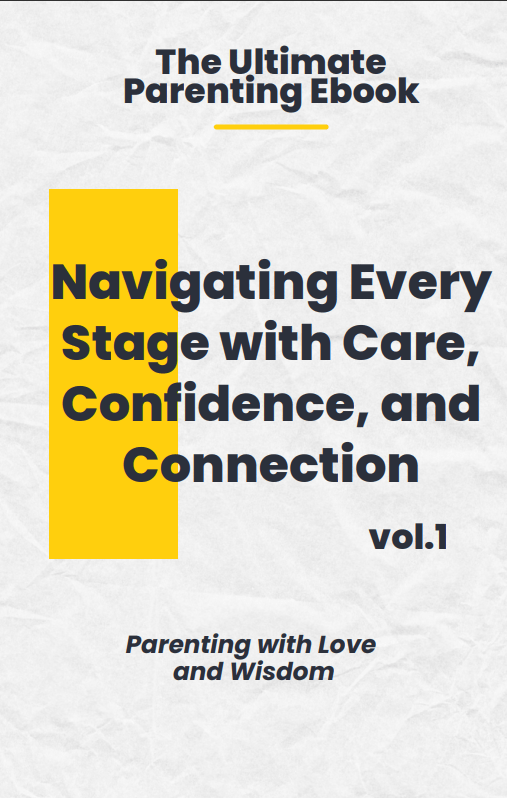
As a parent, you’ve probably found yourself pacing the room at 3 AM, trying to soothe your toddler back to sleep. You’ve tried every trick in the book: calming bedtime routines, warm milk, white noise—but still, your toddler isn’t sleeping at night. The frustration builds, and you begin to wonder, “Why is this happening? What am I missing?”
Well, if this sounds all too familiar, you’re not alone. The truth is, there are hidden reasons why your toddler might be struggling to sleep—and chances are, you haven’t considered some of them yet.
Below we will cover the 7 overlooked reasons your toddler isn’t sleeping at night, so you can finally get the answers you need—and hopefully, a good night’s rest.
In This Blog
ToggleWhy your toddler isn’t sleeping at night? 7 overlooked reasons here
Generic advice on toddler sleep often focuses on simple fixes like bedtime routines and nap schedules. While these are important, they’re not always the root of the issue.
Your toddler may not be sleeping at night because of less obvious factors that often go unnoticed. The good news? Once you understand these hidden reasons, you can begin to tackle them head-on.
Let’s get into it.
1. Sensory Sensitivities Can Disrupt Sleep
One of the lesser-known reasons for toddler sleep troubles is sensory sensitivity. Is your toddler extra sensitive to light, sound, or touch? Even the slightest disruption in their environment can lead to sleep disturbances.
- Bright lights from a nightlight, or the hum of a fan, might be keeping them awake without you realizing it.
- Some toddlers are sensitive to certain fabrics or the feel of their sheets, causing discomfort throughout the night.
If your toddler is not sleeping at night and you’ve already tried adjusting the temperature and routine, consider sensory sensitivities. Try dimming the lights more, or switching to softer bedding to see if that makes a difference.
2. Growth Spurts and Developmental Leaps
If your toddler isn’t sleeping at night, it could be because they’re going through a growth spurt or a developmental leap. These phases are often linked to sleep disruptions because of the significant changes happening in your toddler’s brain and body.
- Growth spurts cause your child’s body to crave more energy, disrupting their usual sleep patterns.
- Developmental milestones, like walking or talking, can trigger restlessness as toddlers process new skills.
During these times, you might find your toddler waking up more frequently, or having trouble staying asleep. It’s important to be patient—these phases are temporary and often resolve on their own. You can help by offering comfort and reassurance during these disruptions.
3. Hidden Dietary Triggers Affecting Sleep
Believe it or not, what your toddler eats could be contributing to their sleep problems. Dietary triggers, such as too much sugar or certain foods, can keep your toddler from falling asleep—or staying asleep—throughout the night.
- Sugar, especially late in the day, can make it difficult for your toddler to wind down.
- Even nutrient deficiencies, like a lack of magnesium or iron, can lead to poor sleep.
Try adjusting their diet by cutting back on sugary snacks in the evening and ensuring they get a balanced meal. You might also want to consult a pediatrician to rule out any nutritional deficiencies that could be affecting their sleep.
4. Parental Stress Affects Your Toddler
Your toddler is more intuitive than you might think. Parental stress—whether it’s relationship tension, work pressure, or even household chaos—can affect your toddler’s sleep patterns. Children absorb the emotional energy around them, which can lead to anxiety or restlessness at bedtime.
If you’re feeling stressed, your toddler might pick up on that and have trouble settling down. To help them, try to create a calming bedtime routine that reassures them they’re safe and loved. This emotional security can make a world of difference in improving sleep.
5. Separation Anxiety at Bedtime
It’s completely normal for toddlers to go through phases of separation anxiety—especially when it comes to bedtime. If your toddler is not sleeping at night, it could be because they’re anxious about being apart from you.
- Cuddling and comfort might be required to help your toddler feel secure enough to fall asleep.
- Gradually giving them the space to sleep on their own, while still providing reassurance, can ease their anxiety over time.
This is just a phase, but it’s a tough one. Be patient and consistent, and your toddler will eventually adjust to sleeping independently.
6. Uncomfortable Sleep Environment
Have you ever considered that your toddler’s sleep environment could be contributing to their restlessness? A room that’s too hot, too cold, or full of distractions can make it harder for your toddler to sleep peacefully.
- Ensure the room is at a comfortable temperature (typically between 65-70°F).
- Consider a white noise machine if outside sounds are waking them.
- Check if the mattress or sheets are too firm or rough.
Making small adjustments to the sleep environment can lead to big improvements in how your toddler sleeps through the night.
7. Health Issues You Might Be Missing
Finally, if your toddler isn’t sleeping at night despite your best efforts, there may be an underlying health issue. Conditions like reflux, allergies, or even mild sleep apnea can cause significant sleep disturbances that are often overlooked.
- Reflux can cause discomfort while lying down, making it difficult for your toddler to stay asleep.
- Allergies, including food allergies or sensitivities to dust mites, can contribute to night wakings.
- Sleep apnea (where your toddler briefly stops breathing during sleep) can also be a culprit.
If you suspect a health issue, it’s important to consult your pediatrician. They can help rule out or diagnose conditions that may be impacting your toddler’s sleep.
How to Identify What’s Keeping Your Toddler Awake
Now that you know some of the hidden reasons for toddler sleep troubles, it’s time to figure out which one (or combination) applies to your child. Here are a few strategies to help you identify the cause:
- Track their sleep patterns: Keep a sleep journal for a week to note when your toddler wakes up, how long they stay awake, and any changes in their behavior.
- Look for patterns: Is there a certain time of day when the sleep problems are worse (e.g., after eating certain foods or during a stressful time)?
- Test out changes: Start with small changes in their environment, diet, or bedtime routine to see if anything improves their sleep.

Conclusion
It’s tough when your toddler isn’t sleeping at night, but remember, you’re not alone in this struggle. By addressing the hidden reasons for sleep problems and taking a targeted approach, you can help your toddler get the rest they need—and hopefully get some much-needed sleep for yourself as well.
Remember, every child is different, and it might take some time to find the right solution. Stay patient and persistent, and you’ll soon discover the right approach for your toddler’s sleep challenges.
Have you noticed any of these issues affecting your toddler’s sleep? I’d love to hear from you.
You may also be interested in : Toddler Vomiting After Crying: The Surprising Connection You Need to Know




